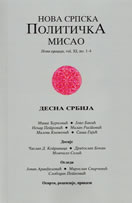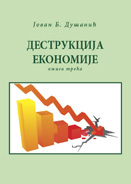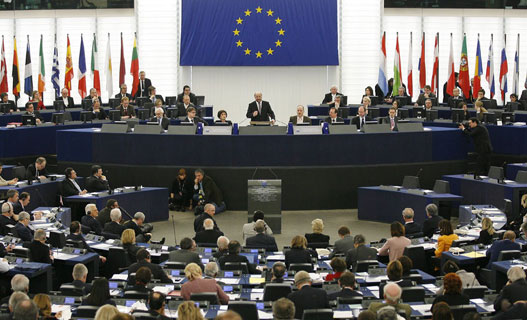| Dokumenti | |||
Rezolucija Evropskog parlamenta o evrointegracijama Kosova |
 |
 |
 |
| petak, 08. februar 2013. | |
|
MOTION FOR A RESOLUTION to wind up the debate on the statement by the Commission pursuant to Rule 110(2) of the Rules of Procedure on the European Integration Process of Kosovo (2012/0000(RSP)) Ulrike Lunacek on behalf of the Committee on Foreign Affairs
The European Parliament, – having regard to Court of Auditors Special report no. 18/2012 on European Union Assistance to Kosovo related to the rule of law published on 30 October 2012, – having regard to the Council Decision of 22 October 2012 authorising the Commission to open negotiations on framework agreement with Kosovo on participation in Union programmes, – having regard to the Commission Communication on a Feasibility Study for a Stabilisation and Association Agreement between the European Union and Kosovo (SWD(2012) 339 final) of 10 October 2012, – having regard to the Communication from the Commission to the European Parliament and the Council on Enlargement strategy and Main Challenges 2012-2013 of 10 October 2012 (COM(2012) 600), – having regard to the end of the mandate of the International Civilian Representative in September 2012 and the phasing out of the International Civilian Office by the end of 2012, – having regard to the ratification on 7 September 2012 by the Kosovo Assembly of the agreement with the EU on the extension of the mandate of EULEX until June 2014, having regard to Council Joint Action 2008/124/CFSP of 4 February 2008 on the European Union Rule of Law Mission in Kosovo, EULEX KOSOVO, amended by Council Joint Action 2009/445/CFSP of 9 June 2009, by Council Decision 2010/322/CFSP of 8 June 2010 and by Council Decision 2012/291/CFSP of 5 June 2012, – having regard to the conclusions of the General Affairs Council meeting of 7 December 2009, 14 December 2010 and 5 December 2011 stressing and reaffirming that Kosovo, without prejudice to Member States' position on its status, should also benefit from the perspective of eventual visa liberalisation once all conditions are met, welcoming the launch a visa dialogue in January 2012 and the presentation of the visa liberalisation roadmap in June 2012, – having regard to the Structured Dialogue on the Rule of Law launched on 30 May 2012, having regard to the National Council on European Integration under the office of the President serving as the high level coordinating body to build a consensus on the European agenda through an inclusive and cross-party approach, inaugurated in March 2012, – having regard to the Council conclusions of 28 February 2012 on Enlargement and the Stabilisation and Association Process, – having regard to UN Security Council Resolution 1244 (1999), to the ICJ Advisory Opinion of 22 July 2010 on the question of the accordance with international law of the unilateral declaration of independence in respect of Kosovo, and to the UN General Assembly Resolution of 9 September 2010, which acknowledged the content of the opinion and welcomed the readiness of the EU to facilitate the dialogue between Belgrade and Pristina, – having regard to the joint statements of the EP-Kosovo Inter-Parliamentary meetings of 28-29 May 2008, 6-7 April 2009, 22-23 June 2010, and 20 May 2011, – having regard to its previous resolutions, – having regard to Rule 110(2) of its Rules of Procedure, A. whereas end of supervised independence marks an important step for Kosovo; B. whereas resumption of Belgrade-Pristina Dialogue at high level is an important step towards normalisation of their relations provided that the parties engage effectively in result-oriented negotiations; C. whereas EU-Kosovo relations have seen important developments with publication of Commission Feasibility Study, launch of the visa dialogue and of the Strategic dialogue on rule of law among others; D. whereas the European perspective of Kosovo is a powerful incentive for implementation of necessary reforms; 1. Welcomes the outcome of European Commission's Feasibility Study concluding that Stabilisation and Association Agreement can be concluded between the EU and Kosovo in a situation where EU Member States maintain different views on status; 2. Encourages nevertheless the remaining five EU Member States to proceed with recognition of Kosovo; 3. Takes note of the end of supervised independence on 10 September 2012, following the judgement of 2 July 2012 by the International Steering Group that the Comprehensive Proposal for the Kosovo Status Settlement has been substantially implemented; welcomes the conclusion of the mandate of the International Civilian Representative and the work carried out by the EUSR/Head of EU Office so far; 4. Welcomes the new high level Belgrade-Pristina Dialogue initiated and facilitated by High Representative Ashton as it has given new impetus to the Dialogue; calls for full implementation of all the agreements reached so far, particularly on the Integrated-Border Management; 5. Emphasises the need for major transparency in communicating the outcomes of the Belgrade-Pristina Dialogue and ensuring the involvement of parliaments and civil societies concerned; 6. Stresses that partitioning of Kosovo is not an option and welcomes the support for territorial integrity of Kosovo as expressed by the Commission; 7. Considers that Kosovo authorities should take further steps to reach out to the Serbian minority, particularly in the North, to ensure broad integration in the society, and at the same time cooperation between all Kosovo Serbs should be enhanced; considers positive the opening of the administrative office in northern Mitrovica; calls for the dismantling of parallel institutions in north Kosovo maintained by the Serbian state, in particular for withdrawal of security services and judicial organs, and for full transparency to financing of schools and hospitals in north Kosovo according to the provisions of the Ahtisaari plan; 8. Calls on the Kosovo authorities to take steps to prepare a roadmap and fully implement the decentralisation process also in the north, according to the Kosovo Constitution; 9. Welcomes the review and extension of the EULEX mandate and supports the Special Investigative Task Force; considers that the report by the Court of Auditors on the EU Assistance in Rule of Law in Kosovo raises very important concerns, including the difficulties due to non-recognition of five Member States; endorses the analysis and the recommendations provided in the Report and calls on all actors involved to implement them, thus improving effectiveness of the EU assistance; 10. Stresses the need for better cooperation and coordination of assistance, between the Member States, EU institutions, and other international donors; calls on the EU Member States to ensure that EULEX is staffed appropriately, as to quality and time-span, and that the composition of staff reflects the necessities on the ground; 11. Welcomes the start of the visa dialogue and the visa action plan of June 2012; urges for a swift implementation of the roadmap; 12. Calls on Kosovo authorities to meet the four short term priorities, criteria for launch of SAA negotiations, in fields of rule of law, minorities, administrative capacities and trade, and to enhance the administrative capacities for negotiations, specifically by continuing restructuring Ministry of Trade; 13. Urges on the Kosovo authorities to step up their commitment and show political will to strengthen rule of law sector; notes with interest the launch of the Structured Dialogue on Rule of Law as the high level forum to monitor the progress in the area of rule of law; 14. Is concerned about the lack of significant progress in fight against corruption and organised crime; calls on the Kosovo authorities to increase political will and courage to fight high level corruption; expresses concern about the lack of full participation in Europol and Interpol due to lack of recognition of statehood; stresses that EULEX should assist the Kosovo Police in deescalating critical and sensitive situations during demonstrations; 15. Notes that corruption and organised crime are widespread in the region and calls in this regard for a regional strategy and enhanced cooperation between all the countries in order to tackle more effectively these plagues; 16. Expresses concern about the limited framework in Kosovo for witness protection, particularly significant in high profile cases; urges Member States to accept more cases of witness relocation; 17. Calls on all parties to finalise the electoral reform to secure a well-functioning electoral framework; is concerned about the shortcomings in the investigation and prosecution related to electoral frauds connected to the parliamentary elections of December 2010 as highlighted in the OSCE report thereon; 18. Underlines the importance of implementing the necessary reform of the public administration, and increase the number of women as well as persons belonging to minorities at all levels of administration; 19. Welcomes the work of the Ombudsperson and considers ensuring its budgetary independence a matter of urgency; 20. Emphasises the need for the Kosovo Assembly to strengthen its independence and its oversight of the budget, executive and security sector, by improving scrutiny of legislation and monitoring of implementation of policies and laws; 21. Stresses the need for a comprehensive anti-discrimination strategy on all grounds of discrimination, and the full implementation of the Law on Anti-Discrimination; 22. Highlights the importance of independent media; calls for the amendment of the Criminal Code concerning the criminal liability of media and the adoption of a new law on protection of journalistic sources; 23. Welcomes the adoption of relevant legislation for protection and promotion of communities and of religious and cultural heritage and the successful taking over of responsibility for the security of most cultural and religious sites of Serbian Orthodox church by Kosovo; calls for further implementation of the relevant legislation, particularly Law on Communities; 24. Welcomes the establishment of Municipal Offices for Communities and Returns in most municipalities, but regrets that, despite progress, return of refugees and IDPs continues to be a challenge, particularly due to security incidents, and encourages the Kosovo authorities to further efforts in this field, on central and local levels, with particular attention to Serbian, as well as Roma, Ashkali and Egyptian returnees; 25. Calls on Kosovo to work on developing renewable energy and on diversification of sources with a view to close down the two highly polluting coal plants according to obligations under Energy Community Treaty; 26. Takes note of plans for new road infrastructures to improve connections between Pristina and bordering countries; stresses the importance of developing public transport with regard, particularly, to upgrading or creating new railway links in the framework of sustainable system of transports; *** 27. Instructs the President to forward this resolution to the Council, the Commission, the EEAS, and the Government and the National Assembly of Kosovo. |

.jpg)






















